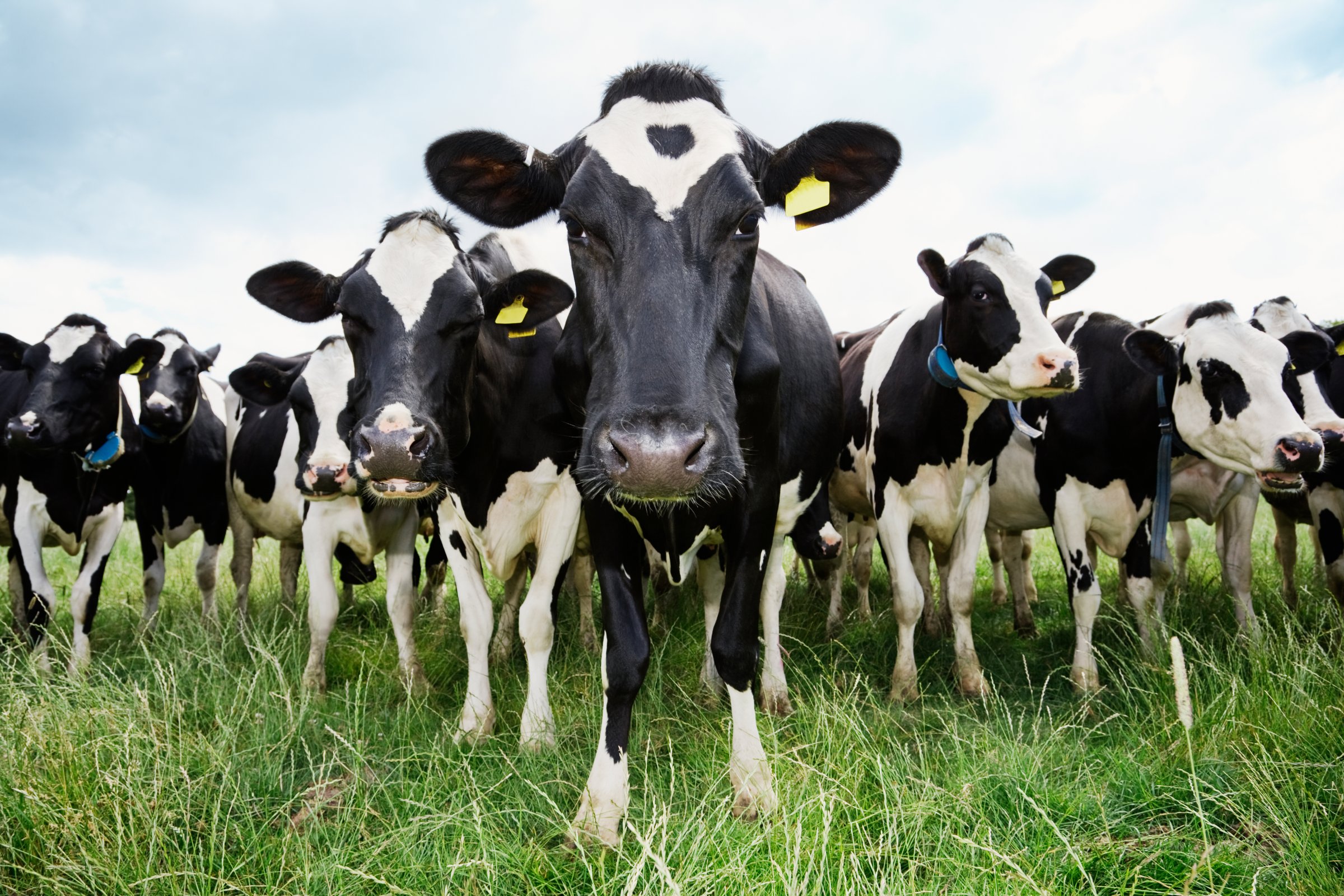
In an unexpected turn of events, cows are helping scientists better understand how to prevent HIV infections.
One of the biggest questions facing researchers developing a vaccine against HIV is why people who are infected do not efficiently make antibodies against the virus. Scientists estimate that only about 20% of people who are infected with HIV produce what are called broadly neutralizing antibodies (bNAbs): naturally occurring antibodies that can defend a cell against the virus. Even among people who do produce them, that production typically starts around two years after infection.
“We are faced with a dilemma,” says Dr. Anthony Fauci, director of the National Institute of Allergy and Infectious Diseases (NIAID), whose agency is supporting the new research. “People infected do not seem to make really good antibodies in terms of potency and breadth.”
So far, scientists have been unable to successfully induce the creation of bNAbs in humans through an HIV vaccine. This is where the cows come in.
In a new study published Thursday in the journal Nature, researchers at the Scripps Research Institute, the International AIDS Vaccine Initiative (IAVI) and Texas A&M University showed that they were able to induce potent antibodies against HIV in cows. Though cows do not get HIV, their immune systems produce unique antibodies against infections.
MORE: Why You Still Can’t Get a Vaccine for HIV
The researchers injected four calves with HIV immunogens, which are proteins designed to elicit an immune response to the virus. They discovered that the cows very rapidly developed bNAbs to HIV in their blood.
“I was shocked,” says study author Devin Sok, the director of antibody discovery and development at IAVI. “It was really crazy and very exciting. The responses developed very quickly — between one to two months — which is well beyond what we anticipated.”
The researchers were able to isolate antibodies from the calves and took a closer look. An antibody called NC-Cow 1 was revealed to be especially powerful when it came to attacking HIV.
“The kind of insight we get from studying this is an understanding of the mechanisms whereby the cows’ immune system is capable of creating these antibodies,” says Fauci.
Understanding how an immune system effectively develops antibodies against HIV, even if it belongs to a cow, is valuable information for scientists hoping to develop an HIV vaccine, especially if they can find a way to get the human body to mimic the creation of these antibodies. The new research also provides insight into how to develop new therapies or treatments for viruses that evade the human immune system.
“As a scientist, this is really exciting,” says Sok. “To put it into perspective, the first broadly neutralizing antibodies were discovered in the 1990s. Since then, we’ve been trying to elicit these antibodies through immunization, and we’ve never been able to do it until now. Until we have immunized a cow. This has given some information for how to do it so that hopefully we can apply that to humans.”
More Must-Reads from TIME
- Why Trump’s Message Worked on Latino Men
- What Trump’s Win Could Mean for Housing
- The 100 Must-Read Books of 2024
- Sleep Doctors Share the 1 Tip That’s Changed Their Lives
- Column: Let’s Bring Back Romance
- What It’s Like to Have Long COVID As a Kid
- FX’s Say Nothing Is the Must-Watch Political Thriller of 2024
- Merle Bombardieri Is Helping People Make the Baby Decision
Contact us at letters@time.com